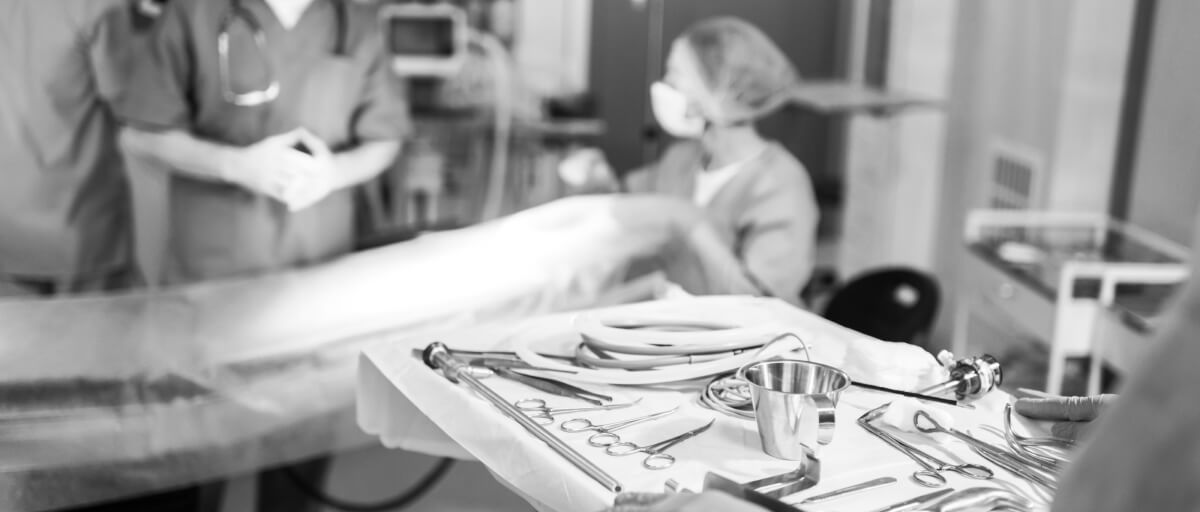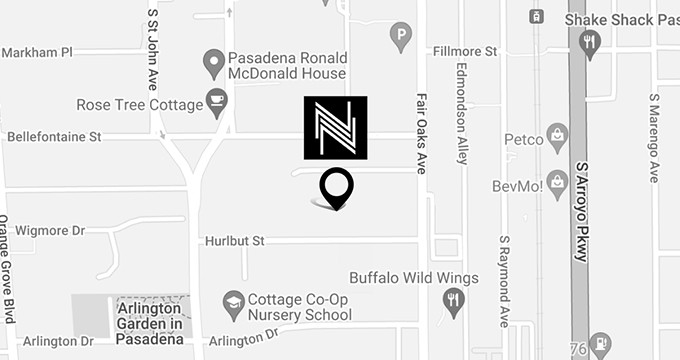
Undergoing plastic surgery is a significant step, both physically and mentally. While much attention is often given to the surgical procedure itself, the preparation phase is equally critical to ensure optimal results and a smooth recovery.
Preparing mentally and physically for surgery goes beyond just following medical advice; it involves a holistic approach that encompasses emotional readiness, lifestyle adjustments, and proactive measures to mitigate stress and anxiety. In this article, we delve into seldom-discussed strategies that can make a substantial difference in your surgical journey, emphasizing the importance of comprehensive preparation for achieving your aesthetic goals with minimal downtime.
Mental Preparation for Surgery
Preparing mentally for plastic surgery is an essential yet often overlooked aspect of the process. Your mental state can significantly impact your overall experience and recovery, making it crucial to address this component with the same diligence as physical preparation.
One of the first steps in mental preparation is setting realistic expectations. It’s important to understand that while plastic surgery can bring about significant improvements, it may not achieve perfection. Discussing your goals and concerns openly with your surgeon can help align your expectations with what is surgically feasible. This honest dialogue can prevent disappointment and enhance satisfaction with the results.
Reducing Anxiety Before Surgery
Anxiety before surgery is natural, but it can be managed effectively. Techniques such as deep breathing exercises, meditation, and mindfulness can significantly reduce pre-surgery stress. Additionally, engaging in activities that you enjoy and that relax you, such as reading, listening to music, or spending time with loved ones, can help keep anxiety at bay. Some patients find that talking to others who have undergone similar procedures can provide comfort and reassurance.
Pre-Surgery Mental Health Tips
Maintaining your mental health in the lead-up to surgery involves proactive strategies. Ensure you have a robust support system in place, whether it’s family, friends, or a professional counselor. Regularly practicing stress-relief techniques and ensuring you get adequate sleep are crucial. If you experience significant anxiety or depression, seeking help from a mental health professional is advisable. They can offer coping strategies and therapeutic interventions tailored to your needs, ensuring you are mentally prepared for the surgery and the recovery period that follows.
Mental preparation sets the foundation for a positive surgical experience and a smoother recovery, highlighting the need for a balanced approach to both mental and physical readiness.
Physical Preparation for Surgery
Preparing physically for surgery is a multifaceted process that involves optimizing your body to ensure the best possible outcomes and a smooth recovery. By focusing on your diet, exercise, and following specific preoperative guidelines, you can significantly enhance your readiness for the procedure and recovery.
Pre-Surgery Diet and Exercise
A well-balanced diet and regular exercise routine are foundational elements of physical preparation for surgery. In the weeks leading up to your surgery, focus on a diet rich in vitamins, minerals, and proteins, which are essential for tissue repair and immune function. Incorporate plenty of fruits, vegetables, lean proteins, and whole grains into your meals. Staying hydrated is equally important; drink plenty of water to keep your body well-hydrated and to aid in detoxification.
Exercise should be part of your daily routine, but it’s important to choose activities that are safe and appropriate for your physical condition. Cardiovascular exercises like walking, swimming, or cycling can improve your overall fitness and stamina. Strength training, when done correctly, can help build muscle mass and improve circulation, which is beneficial for healing. However, avoid overexertion and always consult with your healthcare provider before starting any new exercise regimen.
Preoperative Guidelines for Patients
Following specific preoperative guidelines can help mitigate risks and ensure you are in the best possible condition for surgery. Your surgeon will provide a detailed list of instructions tailored to your specific procedure, but common guidelines include:
– Medication Management: Review all medications, including over-the-counter drugs and supplements, with your surgeon. Some substances can interfere with anesthesia or increase the risk of bleeding and should be discontinued as advised.
– Smoking and Alcohol: If you smoke, you should stop 6 weeks before and after surgery. This includes all nicotine use. Smoking can impair blood circulation and healing. Similarly, limit or avoid alcohol consumption as it can dehydrate the body and interfere with medications.
– Fasting Requirements: Follow fasting instructions provided by your surgeon, typically refraining from eating or drinking for at least 8-12 hours before the surgery.
Pre-Surgery Physical Fitness
Maintaining physical fitness before surgery not only aids in the recovery process but also helps your body cope with the stress of the operation. Focus on exercises that promote flexibility, strength, and cardiovascular health. Gentle yoga or stretching routines can enhance flexibility and reduce muscle tension. Strength training exercises, tailored to your ability, can build muscle mass that supports your recovery. Cardiovascular exercises improve overall stamina and circulation, which are crucial for post-surgery healing.
For those who are less active, even moderate physical activity like daily walks can make a significant difference. It’s important to start any new fitness routine gradually and to consult with your healthcare provider to ensure it’s safe based on your health status and the type of surgery you will undergo.
By dedicating time and effort to physical preparation, you can significantly improve your surgical experience and recovery. A well-prepared body is more resilient, heals faster, and handles the physical demands of surgery better, contributing to overall success and satisfaction with the procedure.
Surgery Preparation Tips
Proper preparation on the day of surgery can significantly reduce stress and ensure everything goes smoothly. Here are some practical tips to help you get ready for your procedure:
Preparing Your Home for Recovery
Set up your home to be recovery-friendly before you head to the hospital:
– Resting Area: Create a comfortable space where you can rest and recuperate. This should be easily accessible and stocked with pillows, blankets, and a nearby table for essentials.
– Medications and Supplies: Ensure that all prescribed medications, dressings, and any other medical supplies are easily accessible.
– Meal Preparation: Prepare and freeze meals ahead of time or arrange for someone to assist with cooking. Nutrient-rich, easy-to-digest foods are best.
– Arrange Assistance: If possible, arrange for a friend or family member to help you for the first few days post-surgery. Having someone to assist with daily tasks can greatly ease your recovery.
By taking these proactive steps, you can create a smoother, more comfortable experience on the day of your surgery and during your recovery at home.
Emotional Readiness for Surgery
Emotional readiness is a critical component of preparing for plastic surgery. Addressing your emotional health can greatly impact your overall experience and recovery.
Having a strong support system is essential. Surround yourself with friends and family who can provide emotional support and practical assistance. Communicate your needs and concerns with them so they can offer the best support possible. Knowing that you have people to rely on can significantly reduce pre-surgery stress and help you feel more secure.
If you think it might help you, consider seeking psychological counseling before your surgery. A therapist can help you address any underlying fears or anxieties, provide coping strategies, and ensure you are mentally prepared for the changes and challenges ahead. Counseling can be especially beneficial if you are experiencing significant emotional distress or if you have a history of anxiety or depression.
Taking these steps to prepare emotionally can help you approach your surgery with confidence and peace of mind, setting a positive tone for your entire surgical journey.
Surgery Recovery Preparation
Preparing for your recovery is just as important as preparing for the surgery itself. A smooth and comfortable recovery can significantly impact the overall success of your procedure and your well-being.
Adhering to your surgeon’s post-operative instructions is crucial for a successful recovery. These instructions will likely include guidelines on medication management, wound care, and activity restrictions. Take all prescribed medications as directed to manage pain and prevent infection. Keeping your surgical site clean and following proper wound care procedures will promote healing and reduce the risk of complications.
Rest is a vital component of recovery. Ensure you get plenty of sleep and avoid strenuous activities that could strain your body. Gentle movements, as advised by your surgeon, can help maintain circulation and prevent stiffness, but it’s essential to avoid overexertion.
Setting up a comfortable and supportive recovery environment at home can make a significant difference. Arrange your living space so that everything you need is within easy reach. This includes placing essential items like medications, water, and snacks close to your resting area.
Consider preparing your home in advance by stocking up on necessary supplies and arranging for help with household chores. Having someone to assist with daily tasks can alleviate stress and allow you to focus on healing. Additionally, plan for transportation to follow-up appointments, as you may not be able to drive immediately after surgery.
By taking these steps, you can create an optimal environment for recovery, ensuring you heal properly and comfortably.
Conclusion
Preparing mentally and physically for surgery is a comprehensive process that involves addressing emotional readiness, optimizing physical health, and planning for a smooth recovery. By following the guidelines and tips provided, you can enhance your surgical experience and achieve better outcomes with minimal stress.
If you’re considering plastic surgery and want to ensure you’re fully prepared, contact Dr. Nima Plastic Surgery at (626) 696-8181 or visit our website to schedule a consultation. We’re here to support you every step of the way on your journey to achieving your aesthetic goals.


